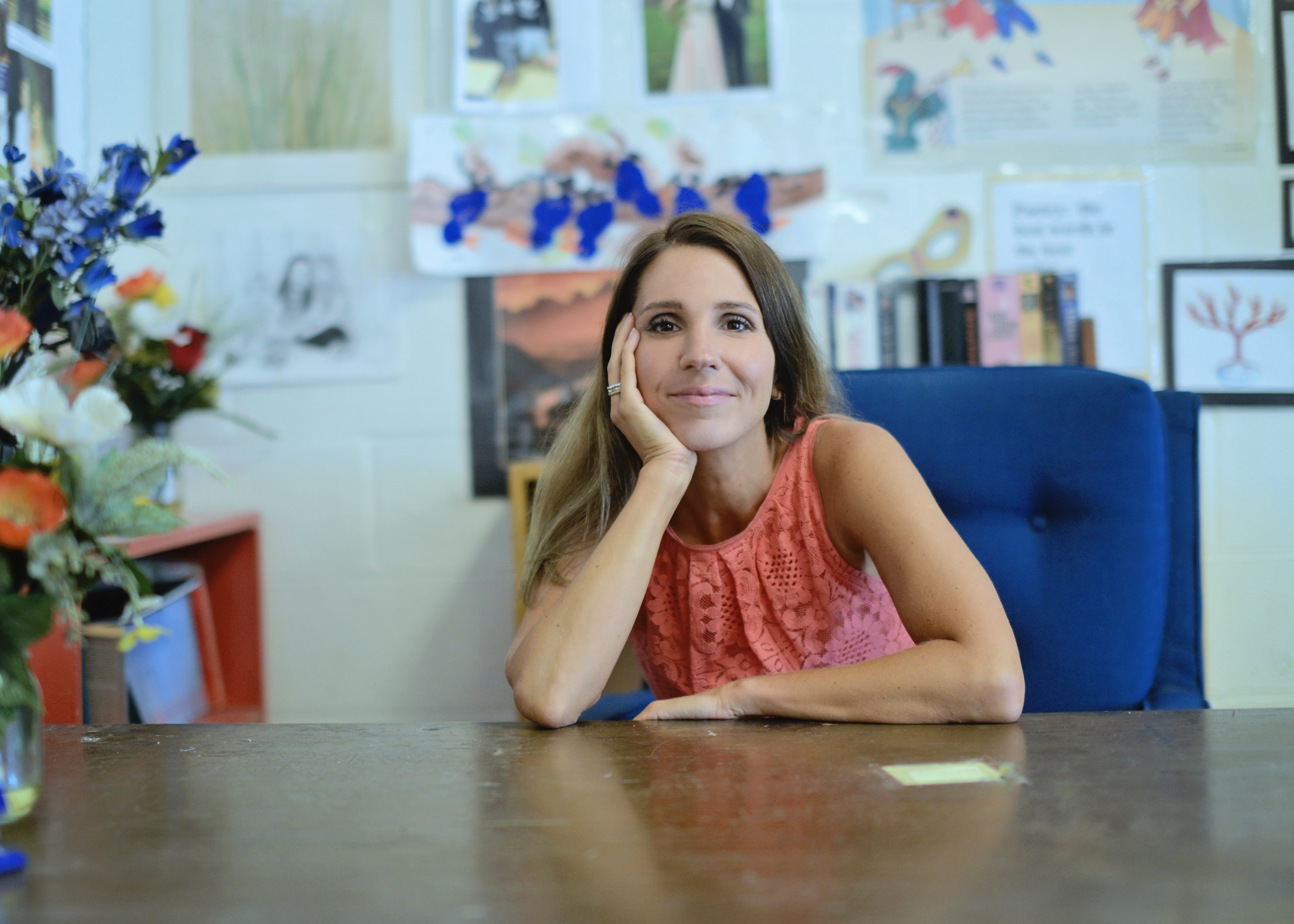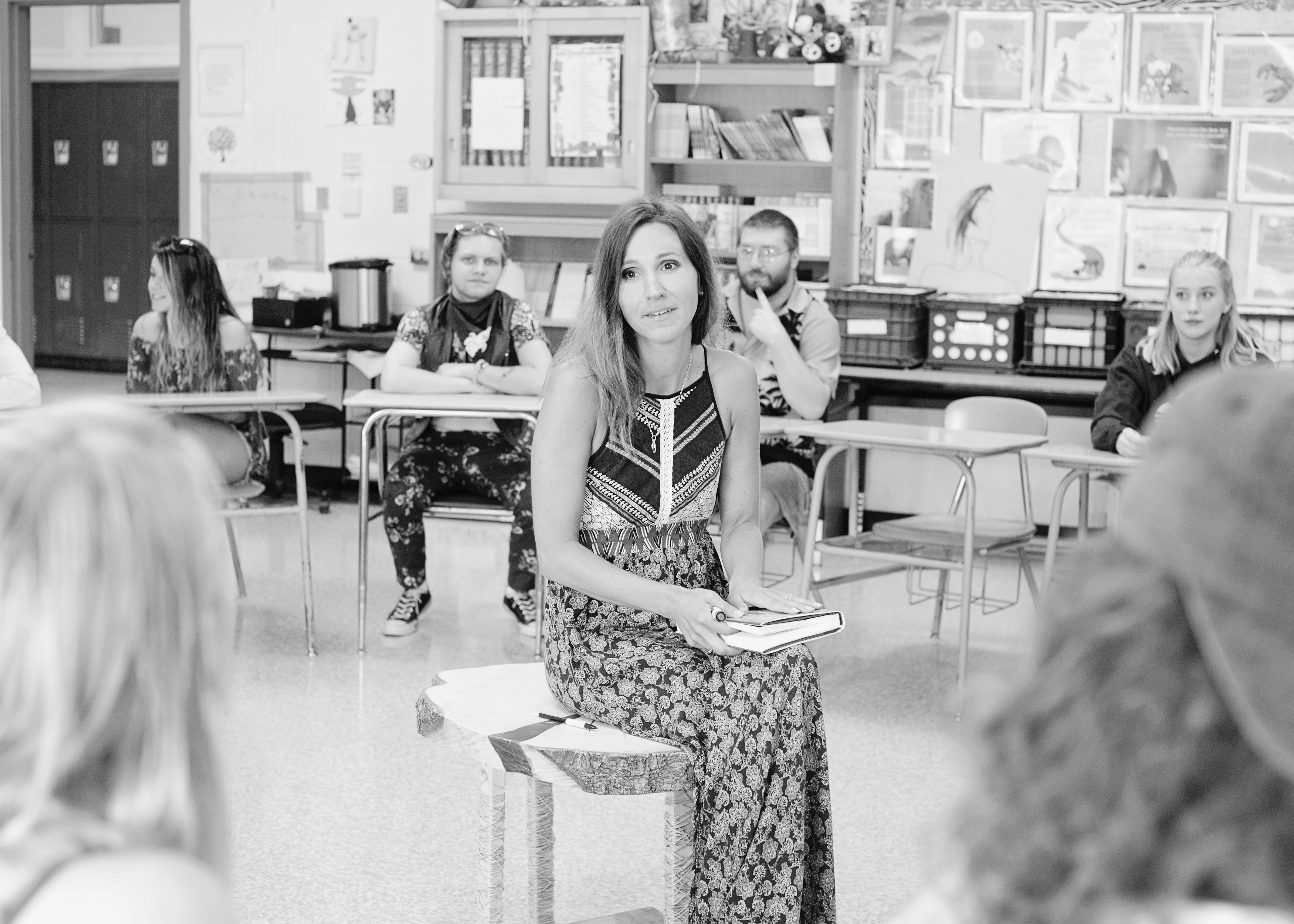For the last few days I’ve been grappling with news stories, numbers adding up, ever-expanding circles on maps and wondering, “What world have I woken up in?” Like other members of my profession, I’ve been scrambling to generate weeks worth of “stand alone” plans, uploading documents to websites, and creating mass emails to my students.
Despite how many times a day I say, “Put your cell phone away,” “Take your book out,” or “Is this really the best time to use the bathroom?” I cannot fathom not saying these things.
I cannot fathom being in a room without children.
Over two decades ago, at the beginning of my teaching life, my father told me, “Kids can smell fear like sharks can smell blood. Just be yourself.”
Though I had no idea why he likened students to predators, I attributed his comment to some sort of “old teacher insight,” the kind that seems so common sense it hardly needs mentioning. Of course I’d be myself. What did authenticity, fear, and kids circling for the kill have to do with teaching?
As it turns out, being “present” has a lot to do with education. At some point in our career, every educator discovers that connection is at the heart of teaching. Kids aren’t vicious carnivores ready to snap. They’re more like minnows in a school.
They’ll swim upstream faster than you can blink if they feel like you’re not swimming with them, watching out for them.
This is why my heart hurts right now.
I know we need to slow the spread of this virus. I know children, the biggest carrier monkeys I’ve ever met, need to stay away from each other, and us, in order to remain healthy. But I also know I’m going to miss them.
I’m going to miss looking out at twenty students staring out the window at the trash truck driver emptying the dumpster into the back of his rig.
I’m going to miss hearing the radiator rattle before I make my daily joke, “That’s my pet rat in there.”
I’m going to miss telling my homeroom to, “Stop talking through the announcements,” while I talk through the announcements.
I’m going to miss being a teacher.
In a world where people are defined by what they do, this pandemic is a wake-up call. For me, my ability to interact with my students reinforces who I am. Being a “present” teacher helps me be a good human: to be kind, to listen, and to impart knowledge. Other than being a wife and mother (which also requires kindness, listening, and wisdom), teaching is my vocation. It’s what I’m called to do.
What do people do when they can’t do what they’re called to do? Literally, what do they do?
I’ve cleaned two decades worth of dust and sugar packets off my desk. I’ve filed folders stacked on filing cabinets since 2010. I’ve started stamping, counting, and alphabetizing books. All of my origami swans, paper weights, and picture frames are delicately facing each other now.
I’ve even resorted to hanging up more pictures of my students (the ones they enclosed in their graduation party invites) onto the shrinking wall space around my desk.
What can I say? I miss them. And. It’s. Only. Been. Two. Days.
Don’t get me wrong. I’ll enjoy sleeping-in with my own children, making them pancakes, watching movies, taking the dog on long walks, and playing board games. We’ll reconnect with each other as a family, count ourselves lucky to have our health and our home, and pray for those who have neither.
Like you, we’ll watch the world’s story unfold through a television screen and hold our breaths.
As for my students, I’ll talk with them through technology. We’ll share our google documents, send group emails to each other, and find ways to learn online. It won’t be the same, but maybe, in this new world we’re living in, we’ll rediscover the value of connection.
Maybe we’ll finally learn that what we do or how we do it doesn’t define us. It’s our relationships with each other that give our lives meaning. If we need to stay away from each other for a while so we can come back together, I can do that. Yes, I can.
I’ve got six boxes to sift through, four books to read, three kids to raise, and a whole lifetime of love left to give. More importantly, so do they.


